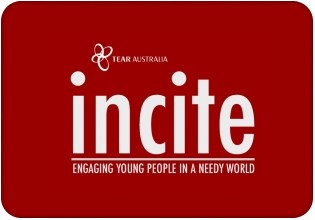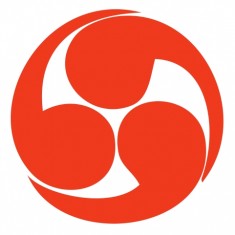
Incite Youth Resources (Download)
The Download contains:
- Introduction
- How to use these resources
Bible Searches
- Coming Home
- Family Conflicts
- God’s Grand Plan
- Greed Grabs
- Is God a Greenie
- Jubilee
- Missing Pieces
- New Beginnings
- Priorities in Life
- Refugees
- Rising to the Occasion
- Smart Money
- Some Good News, Some Bad
- Totally Blind Man
- Touching the Untouchable
- Unequal Worlds
- Untold Story of Jonah
- Walls of Protection
- Well Healed
- Wise Up
- Young and at Risk
Group Grabs
- A serious charge. Drama based on Luke 16: 19-31, includes discussion questions. Bases a scene in a studio interview on the way a rich man treated a poor man at his gate.
- Amnesty Night. A program made to address human rights, for a youth group. Involves resources supplied by Amnesty and speakers to show the issues and then the group is divided up to write letters on the different campaigns on human rights.
- Back to the Future. A program getting a younger group to communicate with older people (eg from a retirement home). Younger people will take away an understanding of the elders and be able to identify aspects of their lives according to points outlined in the activity details.
- Backyard blitz. An idea to bring God’s love outside into the world, doing an act of love, in this case fixing up a backyard, for no reward as an action to show people God’s love.
- Beyond Survival Simulation Game. An activity to give young people a chance to experience issues faced by poor communities so they can develop a project that would help the community. By playing a game and simulating the community the group is to be able to come up with ideas and plans.
- By The Railway Tracks. Aims to give people greater understanding of different viewpoints so that giving money can be done wisely. Following the resources and program the groups will answer questions as well as play out scenarios to gain understanding of problems.
- Calorie Count. Compares calories consumed by younger Australians with those of younger people in third world countries. Necessary resources provided for people to work out their personal consumption and discuss. This program is a good tool for awareness of what less fortunate people go through of similar ages to the young group doing the activity.
- Chocolate Biscuit World. This activity shows the unequal distribution of resources in the world. Biscuits are used to compare the fairness between Australia and Sudan in Africa. After the distribution the group has a discussion about what this means.
- Consumerism – A Spiritual Quest. This is a bigger activity looking at consumerism in our world that involves creating a presentation, playing out a scenario and finishing on a bible reading and discussion. This activity talks about the issue of consumerism becoming a spirituality of its own.
- Cool Water. This is a program for young people to help them understand why third world countries have no access to safe water. Involves discussions that put reasons to the water being unclean and the problems of the people having to carry water great distances to be able to get water they can drink.
- DVD – An Inconvenient Truth. This activity involves having the group watch the DVD then discuss with questions provided.
- Feeling the pressure. A comparison between the personal problems of the group and those in poorer countries. Activity involves discussions, reflections, bible readings and various ideas to consider.
- Following Jesus in the City. Involves an “out and about” trip in the youth group’s local area with little reflections along the way of how the personal experiences of the groups individuals fit in and relate to things that Jesus and other people have done, and the meaning of following Jesus in these areas.
- Fundraiser – Eggy Night. A fundraising idea where the group goes to people’s houses and raises money from people interested in overseas community development with a theme of receiving and selling eggs to each house.
- Getting Better. This activity is a talk sheet response where after reading the resource the group is to respond to different questions.
- Global Internet Café .Computer based, the group accesses websites to learn of the living conditions in other countries.
- Global Village Simulation Game. This is an intricate game where the term global village is put into a different idea of the world actually living in the same community and what this would be like. This explores inequality, wealth and poverty in the world.
- HIV – More than Sickness. This is a comparison activity between the experiences of people with HIV in third world countries to those in first world countries. The activity includes stories from the lives of HIV victims.
- Home and Away. Helps young people compare their own values and hopes with those of young people in poor countries. Activity involves a DVD.
- Homelessness, childrens rights and child youth labour. This activity involves three parts which can be done together or separately. Each activity is either a comparison or has a resource that is read and responded to.
- I Dream of Jesus. Suitable for any size group, this activity is a question response to a story that is read out about a man who has a dream.
- Life in a slum simulation game. A role play activity to better understand slum life. With many parts involved this activity places discussion and various ideas into play so fair amount of organisation will be needed.
- Moboland Simulation Game. This simulation explores the causes of poverty and is aimed to get people understanding the impacts that colonisation, foreign companies and debt have on poor communities. Resources provided including discussion questions.
- Natural Disasters and Money. Compares the effects of a natural disaster in a third world country to the effect it would have in a wealthier country. Activity asks questions that can challenge the group e.g. “Does God hate the people in the disaster affected country”.
- Possessions and Life Pt 1. Can be run as a continuation over a couple of sessions or done as a bigger activity for camps, workshop days. Its main aim is to get the group to think about their attitudes to their possessions and how their possessions could be used to help others. This part involves a simulation game, discussion questions and various forms of responses.
- Possessions and Life Pt 2. This part continues on with possessions but is more of a look at why people give and principles to guide giving. This part contains a game, questions and discussion.
- Rainy Season. This activity is a game that gives an idea on the dependence that people in countries like India and Africa have to put on the rain coming, done through a simulation game.
- Rich Woman… Poor Woman. This is a read out activity which strongly shows similarities and differences of these two types of women. Only short but challenging. Many questions and discussions could be made from this story.
- Rights Auction. In this activity an auction is played out and each member of the group has some money they can use to bid on different rights. Raises discussion on the rights and on the bidder’s personal perspectives.
- Schools Out for Lots of Kids. Two cartoons are provided as stimulus for the activity, and the group compares different aspects of education in two types of countries. Discussion questions provided.
- September the Eleventh. This drama is to be used as an example for how events that receive much media coverage can be used as tools to raise awareness of issues that do great harm but receive little to no coverage. The drama can be adapted for use when a big disaster hits the news.
- Slum Life – The Challenge of Education. This is a game-based learning experience that gives an idea of what education would be like for people who live in slums. The group is divided into families to make an example of the families in the slums and having to experience a new written language (the code) families must decipher to determine if they are to have something healthy or something potentially deadly. This activity is a part of TEAR’s slum survivor resource kit.
- Swapsies. This game is a door to door run, where small groups start with a relatively invaluable item and at each house see if they can trade for something in the house. The most valuable item that comes back wins.
- The Game of Life Simulation Game. This simulation activity is made to get the youth group to think about the most important things in life and what provides security in the world. The game provides a practical look into what the bible says of possessions and security.
- The Other Side of Health. An activity using a handout which looks at the differences in health issues and the treatments available to first and third world countries. Discussion questions included.
- This is a Stick Up. This activity involves getting the group to understand the importance of sticking up for some people and better understanding marginalisation, with talks, small group parts and a simulation.
- Unequal Resources Simulation Game. A simulation to help the group understand the feelings and actions behind those who are victims of unequal distribution of resources. It involves getting the group to complete the same tasks when different groups have different resources.
- Using Simulation Games. A look at simulation games and the structure behind running them.
- Vote With Your Feet. This game can be a starter for any topic. The group goes to designated areas of that indicate their response to a statement made, then explain why they went there. Statements can start easy to get a feel, then the bigger topics can be brought in.
- What If. Drama is performed then discussion.
- What on Earth. This is a question and answer activity for young Christians that aims to bring awareness to the progress made by world missions and the future challenges ahead.
- Who Could Change the Climate. This activity consists of multiple parts to get young people to think about the issues of global warming, what they can do to help, and raise awareness of the problems global warming is to other countries.
- Worlds Apart. A discussion activity which looks at poverty and specific issues involved in poverty. Proverbs that talk on poverty are included to give another look into poverty but from a biblical side.
- Your Family. A reflection activity that has the group look at their families and after reading Colossians 3:12-17 the group is to see how the passage may relate to their own families and the thoughts they have on them.
Leader Feeders
- A clear view of the goal
- Advocate for your young people
- Being inclusive
- Consumeriem and Youth Ministry
- Developing a safe environment for young people
- Failure and new beginnings
- Get your youth group into service
- Helping young people deal with family conflict
- Helping Young People Learn
- Leading discussions and asking questions
- Lowered Eyes and Shuffled Feet
- Peacemakers or Peacekeepers
- Physical Attraction
- Plug into the network
- Raising global awareness
- Serving the whole young person
- Something better than babysitting
- Surviving Youth Ministry
- The Drastically Edited Version
- Training for Youth Ministry
- Young people and homelessness
- Youth at Risk

